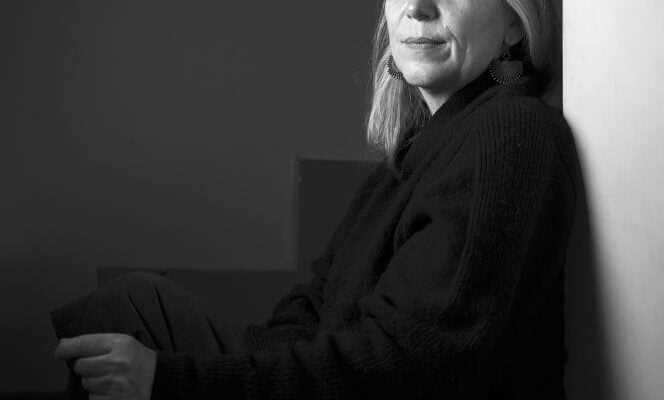“Theatre, writing and cooking are my lifelong passions. I left Grenoble, my hometown, at 18, to go and do theater in Paris, first at Antoine Vitez’s school in Chaillot, then at the National Conservatory. I have always loved eating and cooking. My mother was a very good cook who concocted good traditional dishes for us, often inspired by the cooking sheets of the magazine. She : blanquettes, goose sauerkraut, roast pheasants, kidneys, sweetbreads… I didn’t go to the canteen and ate this kind of thing every day.
Once a student in Paris, I continued to cook. One day, a journalist asked one of my sisters, Delphine, to write a Librio – the little 10-franc books of the time. It was about telling stories and recipes around different themes. My sister, pregnant and due to give birth at the time of the return of the book, titled The children’s kitchen [1999], offered me to write it with her, then I wrote alone Organic cooking [Librio, 2001] and Party kitchen [Librio, 2001]. I liked it a lot and allowed me to supplement my slightly uncertain ends of the month of intermittent entertainment.
mystical era
During an internship, I approached biblical Hebrew and our teacher inspired me a lot by telling us about the philosophical spirit of kosher cooking. Then I went through a mystical era where I spent time in a religious community in Vézelay, and that made me want to write a book on culinary rites, symbolic dishes and religious cuisines: it’s how was born Sacred Flavors, published in 2007 – a gourmet ephemeris, punctuated by the festivals of the three monotheistic religions, the Christian Epiphany, the Muslim Achoura and Pessah, a major holiday in Judaism.
“When I’m on stage, chopping celery is my way of concentrating while the audience settles in. »
In 2012, Jean Boillot, who ran the National Drama Center in Thionville and had noticed that I was always cooking, asked me to create a show on this theme. I adapted my book and it gave Sacred, sweet, salty, which I have played a hundred times over the past ten years, and where I prepare a chorba on stage, while evoking religious festivals, month after month. I talk about food, the hidden meaning of food, I handle it, I cook it, I have an appointment with bulgur, coriander, lemon… The smells tickle the nostrils of the spectators and, after the bows, everyone comes to taste the chorba.
This Ramadan soup, both nourishing and thirst-quenching, is the first thing you eat to break the day’s fast, before moving on to bricks and cakes, then, during a second meal, savor raw vegetables and couscous. When I’m on stage, chopping celery is my way of concentrating while the audience settles in. I’ve made this soup so many times I can make it with my eyes closed. She remains for me a symbol of all that cooking can convey, socially and intimately. As we share dishes, we share shows. »
The Kitchen of Exile. Stories and Recipes (Actes Sud, 2019) and Sacred Flavors (Actes Sud, 2007), by Stéphanie Schwartzbrod.
